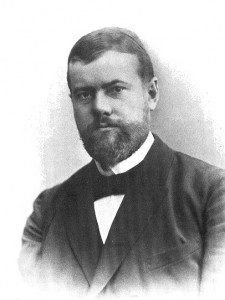
As an undergrad I majored in English and minored in Medieval Studies at a relatively upscale liberal arts school, the College of the Holy Cross. My background is basically working class; neither of my parents has a four-year degree, and my grandparents were a janitor, an assembly-line worker, a machinist, and a home-cleaner. I am, to what seems a large segment of society, precisely the type of person who should not be pursuing a liberal arts degree. I am remiss, a drain, and probably deluded, a “Bernie Bro” angry that my “x studies” degree hasn’t won me a lifelong supply of marijuana and a basic income.
I could go on and on. Of course, none of this is true. I’m now a PhD student, and most of the Bernie supporters I know are either grad students or disaffected middle-aged workers, not angry out-of-work Women’s Studies majors. In fact, when I see a tweet like this one, I am confused: who do people think majors in the liberal arts, the poorest of the poor, the hungriest of the hungry?
No, by and large the privileged major in these disciplines. At my own undergraduate institution, which is 75% white, I imagine my family was in the bottom 25-35% of earners among white students. With one family income from a retired father (whose previous job was, I admit, and especially for a man with no Bachelor’s degree, lucrative) we were far from poor, but far from wealthy. I knew almost no “dirt poor” students at all, let alone any who “squandered” their parents’ money on an “x studies” degree. And, if any had, I bet they would’ve been on scholarship.
In short, while this statement doesn’t hold 100% of the time, I was hard-pressed to find the inner-city, highly-disadvantaged students of color who “waste” their time and parental income with “x studies.” In fact, most of the people from my hometown stayed right there, and, if they went to college, went to relatively local or state schools, where they studied vocational or STEM topics.
As has been the case for millennia, it is the already privileged (and in this I include myself) who end up studying the liberal arts. Our economy would not resurrect itself if we all became Computer Science majors. And, even if it did, since when is the primary task of the Christian to prop up and endorse an economy driven by instrumental reason? Put simply, such has never been the case.
But I don’t just want to break open a stereotype; my claim here is stronger: Christians should oppose the further encroachment of STEM fields and instead champion the Humanities, ill defined as they may be. What we forget is that each discipline carries with it a mode of reasoning, of understanding the world. To major in “x” is to risk adopting the modes of reasoning to which “x” tends, or as Heidegger puts it in “The Question Concerning Technology”: “Questioning builds a way. We would be advised, therefore, above all to pay heed to the way, and not to fix our attention on isolated sentences and topics. The way is a way of thinking. All ways of thinking, more or less perceptibly, lead through language in a manner that is extraordinary.” Derrida writes about a very similar problem. While your being an engineer does not mean I know exactly how you think, it does increase the chance that you will have been taught to examine or understand the world in a certain way. Just as I do not expect a student who has spent four years studying Heidegger to be an avowed Cartesian, I do not expect a friend who has spent his or her time studying applied mathematics to agree with Derrida’s playful critique of groundedness (though he or she might!).
If we accept this basic premise (that specific disciplines are likely to shape our minds in specific ways), then we might see the problem here. Christian reason is not purely instrumental; it does not take the human person to be a computer with appendages or think one can engage in utilitarian calculations regarding anything and everything. And while my claim is not that any STEM major would openly accept such calculation, I am convinced that non-instrumental modes of reasoning are kept alive in non-STEM departments where questions of grounds, modes of reasoning, and the like come up.
To give but one example, a few years ago I attended a town-hall-style discussion on stem-cell research at my undergraduate institution. I went mostly to see what the scientists had to say (it was framed as a humanities and sciences in dialogue event). I shook my head through most of it, but my disgust culminated when a young researcher stood up and declared she “understood” bioethics because her lab coordinator had made her read a sociology textbook before commencing with her work. The paucity of understanding left me speechless.
Obviously, I do not contend that every young scientist sounds like this girl, but I do think it’s hard to blame her. Having had little exposure to what it means to develop or debate various modes of inquiry, or what it even means to say one “understands ethics,” she couldn’t help but think “if these cells will help people, then there’s no other debate to be had.” In short, a certain utilitarian version of reason nested in her head, inculcated by society and by her discipline, and lay there unquestioned.
The academy did not always look like this, nor did society, and while I do not wish to allot myself the time and space to explain in detail now, I do not think they need look this way today.
As Christians, we cannot accept the way things are; we live and seek the Kingdom, and no contemporary country or nation constitutes our salvation. We cannot stand by and surrender to a social, academic, and economic order interested in the instrumentalization of reason. We cannot accept the idea that man is primarily an economic creature, whose training should be entirely, or mostly, determined by raw economic factors. It is my humble opinion that we should be fighting such things, but at minimum we ought not condemn those who seek out and study other disciplines, especially when their critiques might help us, reintegrate some sense of mystery into the cold, technical world of the modern academy; we should welcome them.
I’ll leave you with some G.M. Hopkins:
Look at the stars! look, look up at the skies!
O look at all the fire-folk sitting in the air!
The bright boroughs, the circle-citadels there!
Down in dim woods the diamond delves! the elves’-eyes!
The grey lawns cold where gold, where quickgold lies!
Wind-beat whitebeam! airy abeles set on a flare!
Flake-doves sent floating forth at a farmyard scare!
Ah well! it is all a purchase, all is a prize.Buy then! bid then! — What? — Prayer, patience, alms, vows.
Look, look: a May-mess, like on orchard boughs!
Look! March-bloom, like on mealed-with-yellow sallows!
These are indeed the barn; withindoors house
The shocks. This piece-bright paling shuts the spouse
Christ home, Christ and his mother and all his hallows.












